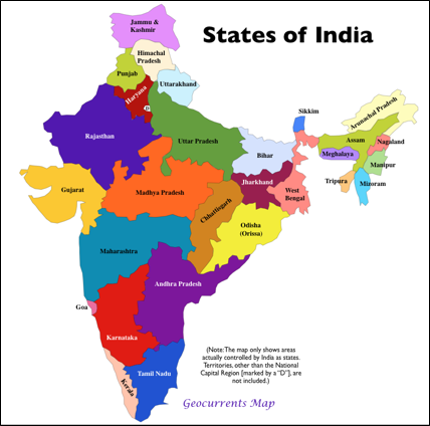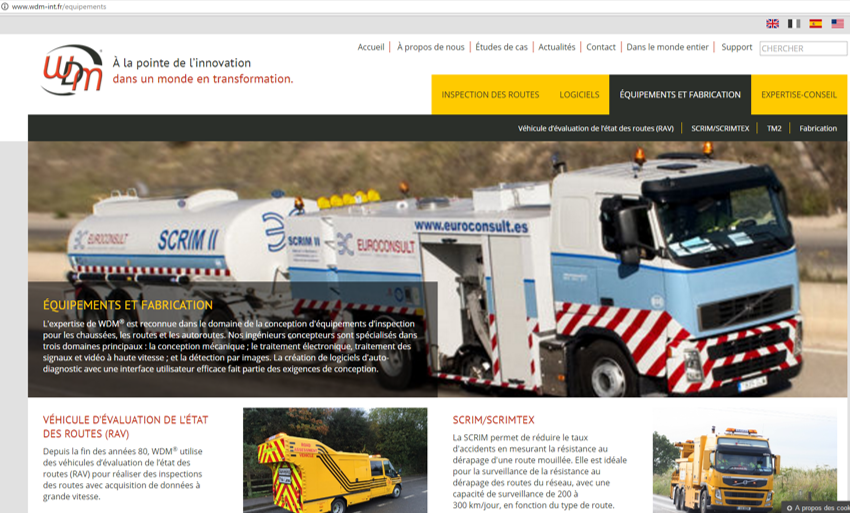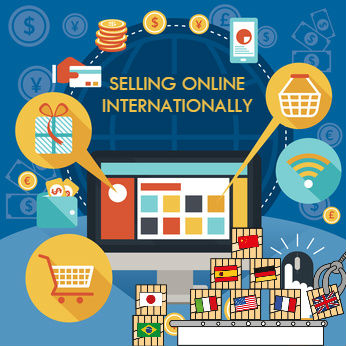The land grab for internet users in India is in full swing and nowhere more so than in ecommerce. India now has the second largest number of internet users in the world, behind China, but this still means that about 65% of India’s population is not yet on the internet. While there are many Indian tech companies there are surprisingly few independent internet players, leaving the field open to the internet giants of the world. Google, with a historically impenetrable 96% market share in India, is facing serious competition from Chinese search engine giant Baidu. Amazon and Alibaba are dividing up online retail, gobbling up homegrown talent while Uber, Facebook and others all look for a slice of the cake.
Read MoreInternational Business and Technology Blog
Tags: All posts, Global Markets, Global Ecommerce
Is India’s online world finally coming of age?
Lured by the potential size of the market, an intrepid US manufacturer we know started exporting to India in early 2012. While it found willing in-market partners, the challenge of complex tax structures, patchy infrastructure, poor logistics and out-dated payment systems, meant that its B2B and B2C sales objectives were far from achieved. Yet this year, fortunes appear to be changing.
Read MoreTags: All posts, Global Markets
WDM takes to the online highway with their first global websites
Posted by Susanna Hardy on Tue, Nov 22, 2016
WDM®, the family-owned Bristol company and world leader in delivering safer road surfaces, has launched its first global websites to support export sales.
WDM® is the UK’s leading manufacturer and provider of road surveying equipment and survey services and has more than four decades of experience in road condition assessment.
Read MoreTags: All posts, Success Stories
Domain names, specifically internet Top Level Domains (TLDs), are increasingly an integral part of all business strategies and global brand development. Businesses spend many millions on domain names. There are many egregious valuations to demonstrate this phenomena including the amounts paid for: fund.com ($10M) , hotels.com ($11M), privatejet.com ($30M), insurance.com ($36M) and lasvegas.com ($90M). TLDs have a recognized quantifiable commercial value. Take fb.com ($8.5M) which was purchased by Facebook to redirect to facebook.com; iCloud.com ($6M) purchased by Apple for the same reason. And what about your company, your brands and your country code domain names?
Read MoreTags: All posts, Website Localization, International Online Marketing
In the past few months, Google has introduced two major changes to their Google Keyword Planner available via Google AdWords. The tool is frequently used by SEO (search engine optimization) experts not only for paid advertising, but also to research and analyze keywords for organic search. Google Keyword Planner provides estimates of average monthly searches of individual keywords. The tool can focus results on specific geographic areas, and is therefore very helpful in multilingual search engine optimization.
Read MoreTags: All posts, Website Localization, International Online Marketing
Today’s online world offers business globalization at an incomparable speed, cost, flexibility, scalability and profitability compared to all other routes to market. The international internet business model is a paradigm change, where successful globalization is achieved through localization. Cumulative online local successes, market by market, delivers global success, hence the “glocal” mantra. Successful corporates seeking to grow their businesses globally are leveraging this optimal online route, local market by local market, and gaining their global success on an unprecedented scale. Without borders, the internet offers companies across all sectors, opportunities to internationalize. There are some outstanding well published, even infamous, examples, including Amazon and Uber. However much glocalization is a no-brainer, getting it right is tough, demanding high levels of both online technical skill sets, coupled and with local market understanding. So let’s get you started on your glocal (global/local) program today.
Read MoreTags: All posts, Website Localization
Apple makes a lot of things look easy and intuitive. Their global online presence and marketing is a great example, we give them A++. Looks easy, but does your company get anywhere close? In our ongoing review of best practices for global online website presence and marketing, we dive into some of Apple's 100+ websites. Successful website and online marketing internationalization requires a range of skill sets and competences, made all the more complex by the inevitable geographic dispersion. Nevertheless there are companies that are extremely good at this, like Apple. In fact, Apple is so good that its online stores are the main driver for the >$200Billion net cash stockpile, most of that earned outside the US.
Read MoreTags: All posts, Website Localization, International Online Marketing
Are you thinking of setting up an international online store? We put together a quick test that will help you evaluate whether your products and business model are suitable for selling online internationally.
The array of products to sell online is enormous. Frankly, creating an exhaustive list of all requirements for online sales that would address every single type of product sold from and to every single market in the world is an impossible task. To keep things fun and easy, we put together a list of questions that you should ask yourself when deciding whether to sell online internationally.
Read MoreTags: All posts, Global Ecommerce
Here’s the first clue: in today’s online world, set out to be found! And that changes everything: less cost, less time expended, faster recruitment (days even…), more and better quality candidates (as they span a range of access routes to market). And finally a better business relationship as the potential partners are approaching you, rather than you chasing them, so you are in the driving seat. Change your 20th century rule book: don’t go out there using traditional “Find an Overseas Distributor” routes. Deploy today’s online technologies to be highly visible in your target markets and let those “best of” potential distributors find you. Set out to be found and identified as the company that they want to represent in your target market - their local market. Today’s 21st century rule book is all about letting your international online presence do the heavy lifting. So throw away those “Yellow pages” and put up those “online localized pages”.
Read MoreTags: All posts
Ever attentive to the international ambitions of its members, the US National Marine Manufacturers Association (NMMA) conducted a survey in June 2016 appropriately titled “Looking to Navigate Beyond US Borders?” 84 companies responded, providing results that re-inforce what those charged with navigating those challenges know: that there are two main routes to grow exports and international business, namely that of i) international trade shows and then ii) online marketing and social media.
International trade shows, the staple route to international markets since such events commenced (in France) some 120 years ago, remains the leader with 73%. But what is interesting is the rapid uptake of online marketing and social media. Off most navigators horizons just 5 years ago, online marketing now commands the attention and budget of 65% of the respondents. And watch that number and % figure continue to rise…
Read MoreTags: All posts, Website Localization, International Online Marketing










